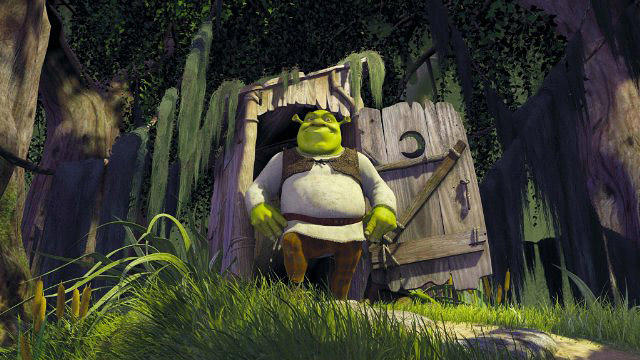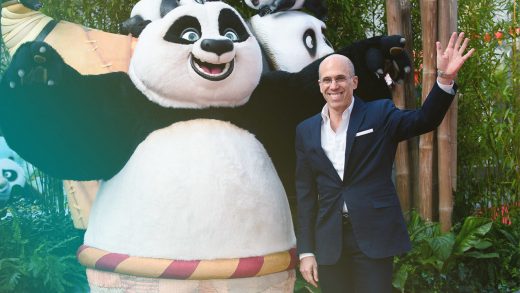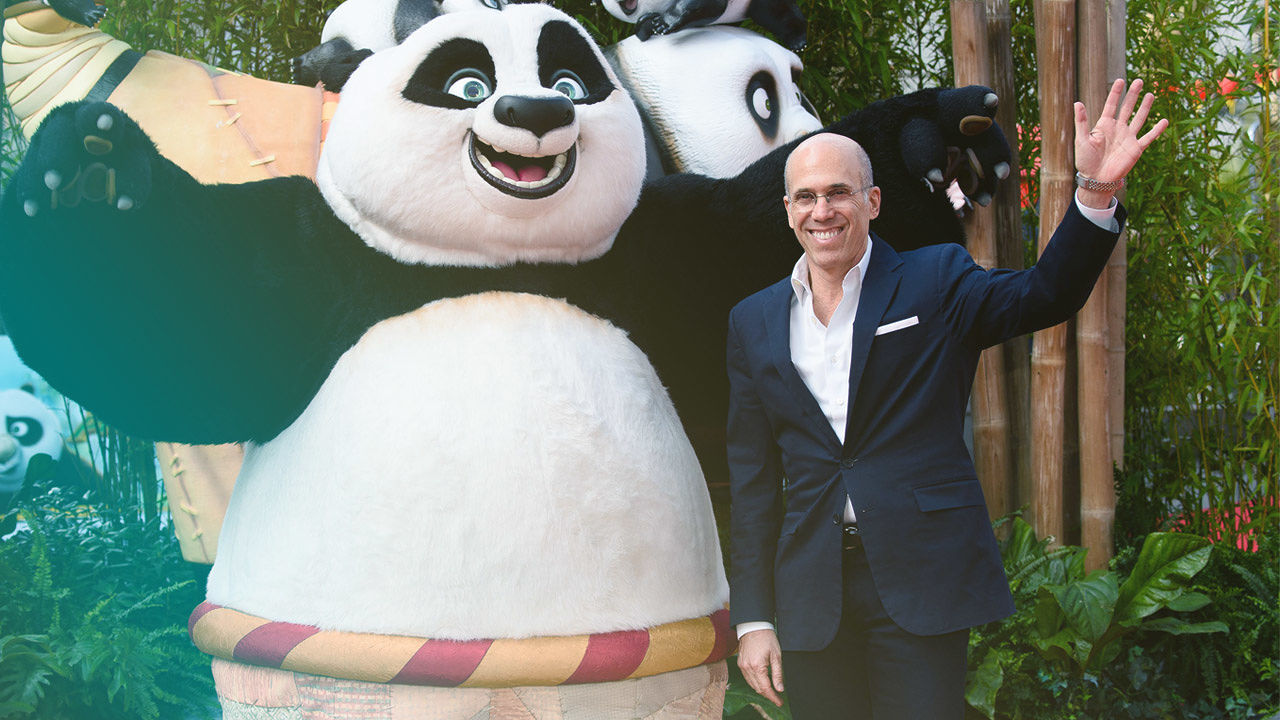How Jeffrey Katzenberg Created, Built, And Sold DreamWorks Animation
And so it ends.
On Thursday, Comcast made it official and bought DreamWorks Animation (DWA) for a hefty $3.8 billion, bringing to a close a Hollywood saga that began back in the early 1990s when Jeffrey Katzenberg, then the chairman of Disney, was unceremoniously fired by his boss Michael Eisner. Fueled with ambition, rage, and a desire to trounce Disney, Katzenberg cofounded DreamWorks SKG, an independent studio full of sky-high ambitions, with movie mogul Steven Spielberg and former music industry impresario and billionaire David Geffen. Katzenberg became CEO of the spinoff company DWA in 2004.
DWA’s new deal with Comcast, the parent company of NBCUniversal, means that the kinetic, Diet Coke-chugging Katzenberg will finally step down from the animation company he tirelessly built, and that at its height churned out blockbusters like Shrek and Madagascar. Chris Meledandri, the head of Illumination Entertainment, which is Universal Pictures’ animation division, will now oversee DWA’s film studio, while Katzenberg will take on the role of consultant to NBCUniversal. Katzenberg will also be chairman of a new division called DreamWorks New Media, overseeing entities like AwesomenessTV, a thriving digital network aimed at millennials in which DWA owns a controlling stake.

The sale reconfirms the not-so-new reality of the challenges of being an independent studio in today’s Hollywood. It’s no coincidence that DWA’s rivals, including Pixar and Illumination, are both owned by deep-pocketed conglomerates that can withstand downturns in box office fortunes. That is something DWA has been struggling with. Despite top-grossing franchises like Shrek, Kung Fu Panda, and How to Train a Dragon, the company has not been as consistent as its competitors in recent years. Its last hands-down hit was Madagascar 3 in 2012. The company’s latest release, Kung Fu Panda 3, fared well (it grossed $504 million worldwide)—until you consider that its budget was a reported $145 million and that films like Disney’s Zootopia are about to cross the $1 billion mark at the box office. As for DWA releases like Turbo and Mr. Peabody and Sherman, they simply failed to resonate.

Like DreamWorks, the film studio that Spielberg still oversees in a much more modest form than originally envisioned, DWA’s ambitions—or Katzenberg’s ambitions, for he has always been the company’s beating heart and most hands-on overlord—ultimately got the best of it. From the beginning, everything about the company was grandiose, starting with its Tuscan-inspired campus in Glendale, California. Stocked with water fountains, masseuses, and free lunches, the studio was expressly built to woo away animators from Disney—and it succeeded. But as the go-go ’90s faded and the movie industry began contracting, DWA never fell in line with the times. It just kept getting bigger and more grandiose. That meant budgets and even schedules ballooned—at one point DWA was churning out three animated films a year, which is three times what companies like Pixar and Disney have historically produced. There’s a reason why they were spending so much money and time: Animated films take several years to create. Eventually, the times—and Wall Street, specifically—caught up with DWA. The campus was sold, pink slips were issued, and Katzenberg began looking for a buyer.
In some ways, though, Katzenberg was very much in tune with the rapid changes in the industry. He was an early (and stalwart) champion of 3-D filmmaking. And more so than most old-school moguls, he is keenly connected with youth culture (he was one of the first suits to make an appearance at Vidcon, the annual gathering for YouTube stars and enthusiasts) and bet savvily on AwesomenessTV back when most people had never even heard of it. He also built up DreamWorks’ TV division in interesting ways—DWA creates thousands of hours of kids’ programming for Netflix, and the company acquired Classic Media back in 2012, giving it the rights to characters like Casper the Friendly Ghost and Lassie.
These latter moves may be what saved him, ironically, and snagged him a buyer after several near-marriages with suitors like Hasbro and Japan’s SoftBank. Comcast is said to be interested not just in DWA’s movie properties, but in all of its IP, which it plans to exploit across theme parks, consumer products, and in TV.
When Katzenberg cofounded DreamWorks he was the scrappiest member of the golden triumvirate—as well as the poorest. Unlike his partners, he actually needed a job. But what started as just that, a job, became his new identity and calling. His departure from Disney had been “Biblical,” as one source told me when I was writing my book about DreamWorks, The Men Who Would Be King. “That was his homeland.” Very quickly, DreamWorks and then DreamWorks Animation, which was spun off as a public company, became his new homeland. Over the years, in good times and in bad—and for better or for worse—no one has been more dedicated to building it, cultivating it, and protecting it than Katzenberg. As a leader, he is never not present. Back in 2005, when DWA was sent into a tailspin after Katzenberg made overzealous predictions about the sale of Shrek 2 DVDs and the company’s stock plummeted, a situation made all the more grave by an SEC investigation (which was later dropped), Katzenberg remained in salesman mode. At a press screening of Flushed Away at the Glendale campus, the CEO showed up in his trademark uniform of khaki pants and white button-down and prattled on about the film. Only those who were really looking could see how harried he was.
Katzenberg has never been one to relinquish the reins happily, and while this sale must be a gigantic relief for him, it must also be hard. At the very least, it must be emotional. (It is also lucrative: His stepping down will net him a reported $21 million and his stock options are worth $408 million.) Although he’s now departing his homeland by volition, or at least by consent, unlike Disney, DWA was built with his blood and sweat. Comcast may now be DWA’s owner, but Katzenberg will forever be its soul.
Fast Company , Read Full Story
(59)














